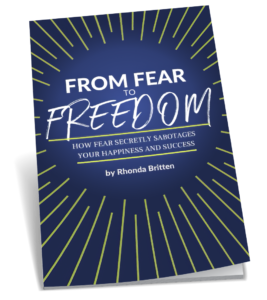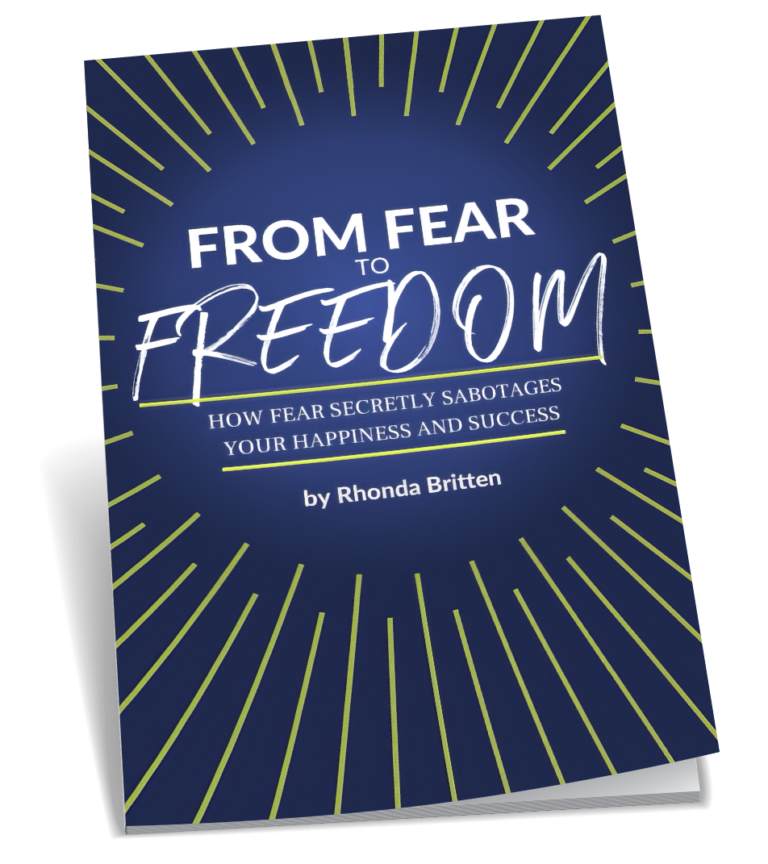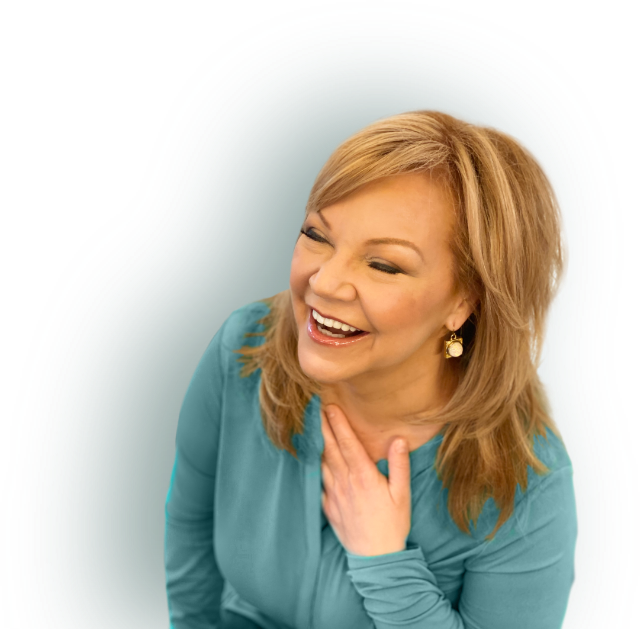Learning how to ask for forgiveness isn’t easy. It takes a great deal of self-awareness, emotional intelligence, humility, and courage. It takes accepting that you’re not perfect and acknowledging that fact in front of others.
You don’t always get things right. You make mistakes. You behave in ways you regret and say things you wish you could take back. And guess what? We all do!
But I know, I know, I know. It doesn’t matter that we all fumble from time to time. Knowing this fact doesn’t make it any easier on our egos or our pride. Acknowledging we’re wrong is hard, and asking for forgiveness is even harder.
So, how do you start asking for forgiveness? How do you apologize to someone you love? How do you get someone to forgive you after you hurt them?
It all starts with self-forgiveness and inner peace. But I’m getting ahead of myself! Let’s dig into how to ask for forgiveness, so we can all start to be accountable for our actions and carry ourselves with respect and humility.
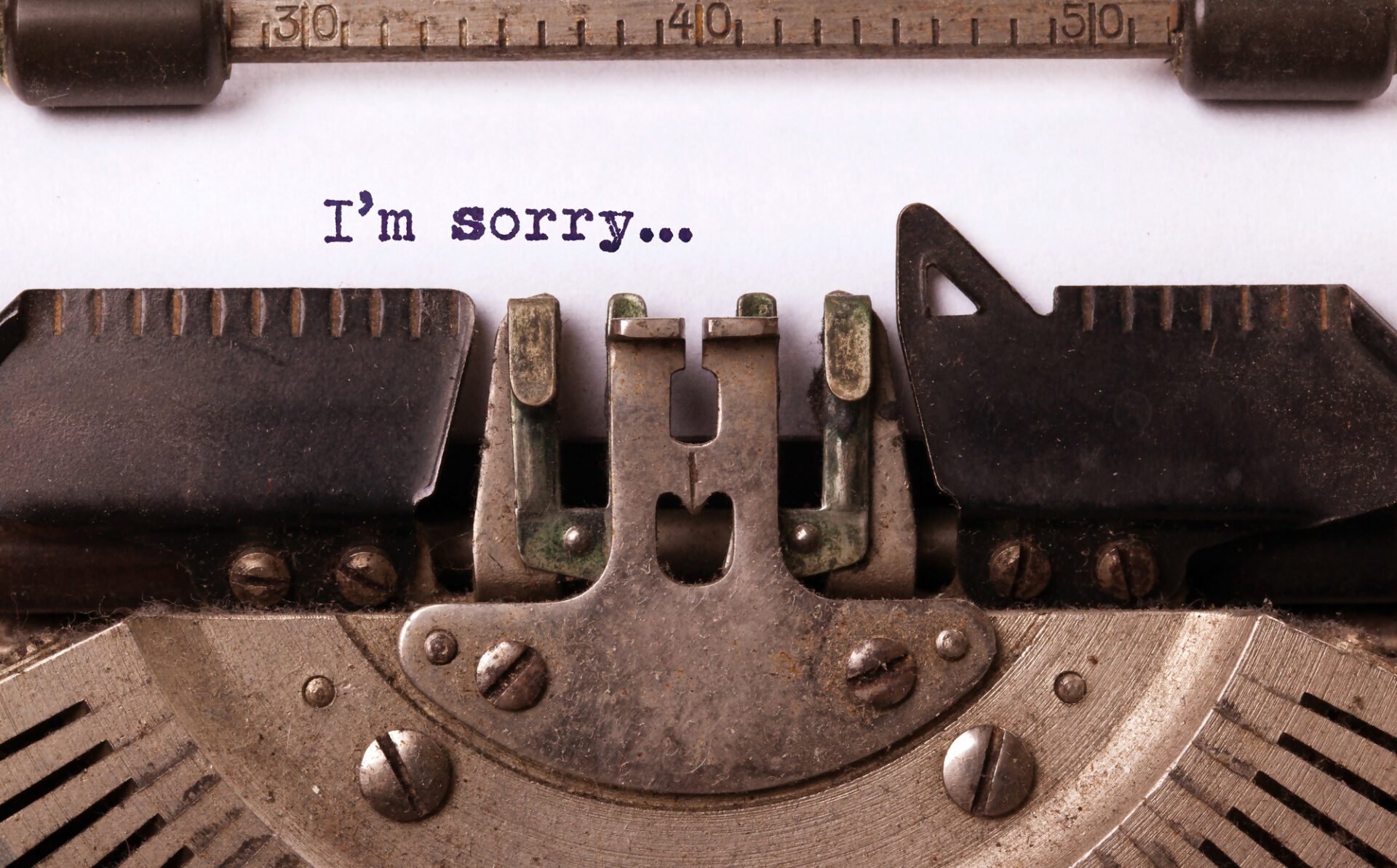
How to Ask for Forgiveness
Is Being Right More Important Than Being Happy?
Now, this is a tricky one. How important is being right to you? How often do you get stuck in petty arguments about this, that, or the other thing? Do you always need to have the last word? Do you disregard the feelings of others because you must be proven correct above all else?
You’re not alone.
For many of us, being ‘right’ takes precedence over happiness.
We get so caught up trying to prove we are right or convincing others that we’re right that we end up ignoring our real needs and desires. We lose sight of what really matters.
When we want to be right more than we want to be happy, it justifies our behavior. If we stay ‘right,’ then we can ignore any feelings of shame, worry, guilt, etc. How often do your arguments conclude with you being left completely alone in your ‘rightness?’
For example, let’s say you’re at a family party and your sister just said the quote “physician, heal thyself” is from Shakespeare, but you know it’s actually from the Bible. While it would be so easy to simply let it go, she’s incorrect, and you know you’re right.
So, you interrupt her to tell her so, embarrassing her in front of her partner, children, everyone in the room. Because she’s embarrassed, she fights back. But you’re right, so you continue to argue with her, making everyone in the room uncomfortable.
After a few minutes, your sister, visibly upset, leaves the room. In the awkward silence that follows, everyone stares at the floor and tries not to make eye contact with you. Congratulations! You won. You’re right again! How does it feel? How does everyone else in the room feel? How does your sister feel?
So, is being right more important than being happy? I certainly don’t think so! At Fearless Living, we believe it’s essential to focus on what truly matters, as opposed to getting caught up in endless debates or proving ourselves right at all costs.
The wasted time and energy and hurt feelings simply aren’t worth it. You embarrassed your sister and hurt her feelings. Was she wrong? Sure, she did make a mistake by mixing up her authors. But is it really ‘right’ to embarrass her like that? You could have sent her a text or approached her at another time if you felt it was that important. The way you went about it was wrong. You hurt her feelings, which means it’s time to apologize.
The sooner you accept this, take responsibility, and ask for forgiveness, the sooner you can all get back to the party and be happy again. Isn’t that more important than being right?
First, You Must Forgive Yourself
If you’re like most people, and I bet you are (hello, fellow human👋), you probably think forgiveness has to do with one person or event. You do something wrong, you apologize, and that’s that. But how often do you still feel bad even after your apology is accepted? How often do you still feel like a bad person even though the person you hurt or offended said everything was okay?
This is because the journey of forgiveness has so much to do with self-forgiveness. It doesn't matter how much you apologize to someone else or earn their forgiveness—you will never be free or find peace until you forgive yourself.
When you feel like you really messed something up, it rocks the core of your identity. So often, we hold ourselves up to an impossible standard of perfection. When we don’t live up to that self-image we’ve worked so hard to build, it feels like a betrayal.
You are letting yourself down. How you see yourself is forced to change, and this doesn’t feel good. It’s confusing. It’s destabilizing. And what’s more, it hurts. It hurts so much that many of us try to deflect and blame someone else or our circumstances. You couldn’t have made that mistake.
But you did. And before you accept the forgiveness of others and truly move on, you must seek forgiveness from within.
Folks, forgiveness has everything to do with you. Whether you’re asking for forgiveness or considering forgiving someone else, forgiveness is your personal story—your journey. Only you can decide when you’re truly ready to move on from the past.
Trust me; I spent decades unwilling to forgive myself. It was a cage. I was trapped. I thought it was my fault that my parents were dead. When my dad murdered my mom and then shot himself in front of me, I was forever changed. For 20 years, I carried with me the guilt of being unable to save them, to stop that terrible thing from happening.
Was I, at 14 years old, actually responsible for the events that transpired that day? No.
Was I responsible for the decades of alcoholism, bad relationships, suicide attempts, and other self-destructive habits that followed? Yes.
My parents didn’t make those choices for me.
I did.
Before I could find a semblance of peace, forgive my parents, or become a Life Coach, I had to acknowledge my actions and start walking the path toward self-forgiveness.
You must own your actions before you can authentically apologize. To accept another person’s forgiveness, you must also allow yourself the space to forgive yourself.
Give a Sincere Apology
Apologizing is not a decision to make lightly. When you hurt someone you care about, it’s hard to know how to apologize in a way that feels sincere and genuine. It’s very easy to fall into the trap of offering empty words or making promises you can’t keep.
If you make the same mistake (or do something you know someone important to you doesn’t like) time and again, it can be hard to give a good apology because the other person may doubt your sincerity.
Learning how to express remorse and apologize in a way that will actually resonate with the person you’ve wronged is an important skill and one that takes a lot of time and effort to master.
So, how do you apologize to someone you hurt deeply?
Start by acknowledging your guilt and taking responsibility for your actions. This means being honest about what you said or did and why. Do not minimize or justify your behavior.
Think about how your actions have impacted the other person, and be willing to actively listen to their concerns without interrupting them to defend yourself.
Remember that apologizing isn’t about winning or making yourself look good. A sincere apology demonstrates that you truly care about the person you hurt and value your continued relationship.
As you work through your self-forgiveness, take time to reflect on your actions and how they have affected the people in your life. If you truly feel bad about something you said or did, reach out to the person you wronged and say that. The most powerful apologies are rooted in humility, compassion, and self-awareness.
Don’t Have Expectations
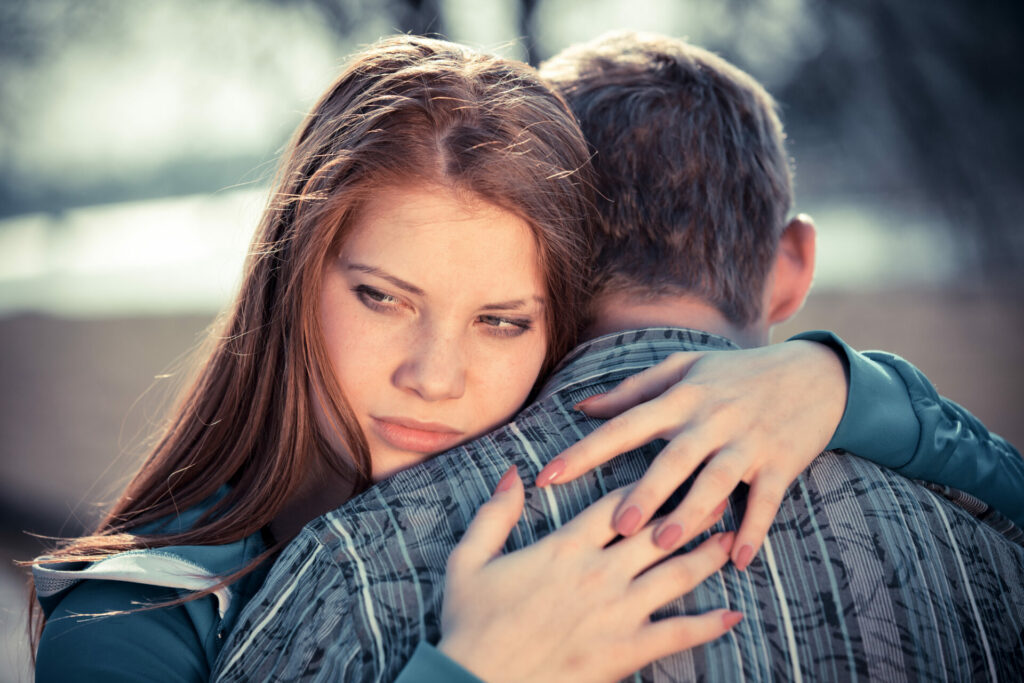
One of the hardest parts about asking for forgiveness is the fact that the other person might say no. Fear of rejection is one of our biggest emotional fears, which is why we speak about it so often at Fearless Living.
Everyone fears rejection. While not quite as exciting as asking someone out on a date for the first time, asking for forgiveness can still carry the same level of anxiety. Wouldn’t it be better to just let things blow over and then speak to them in a few weeks? What if I say the wrong thing? What if they don’t want to hear me out? What if they say they can’t forgive me? What if they don’t want to be friends anymore?
Unfortunately, the person you hurt is under no obligation to forgive you just because you said you were sorry. They are on their own forgiveness journey. You might be ready to say sorry. You might be ready to forgive them. You might be ready to forgive yourself. But that doesn't mean they are ready to forgive you.
While this hurts, you must be prepared for this eventuality. They are on their own forgiveness journey, so allow them to forgive in their own time.
Do not apologize to earn someone’s forgiveness; apologize to let them know that you accept responsibility and believe what you said or did was wrong. Apologize because you feel the need to clear the air and let them know you value them as individuals as well as your relationship with them. Apologize because you are truly sorry, not because you think it’s what they want to hear.
It works the other way too. Just because someone says sorry to you doesn’t mean you will be ready to forgive. Listen and reflect on what they have to say, but know it is your own forgiveness journey. You may not be ready when they are, and that’s perfectly okay. You will forgive in your own time.
It takes two people to have a relationship. If your actions hurt someone deeply, it may result in a broken relationship. You can’t demand forgiveness. Like I said before (and will keep saying for as long as I can!), forgiveness has everything to do with you. It’s about holding yourself accountable for your actions. We can ask for forgiveness, but we cannot expect it.
And remember, just because the person you hurt is unable to forgive you now does not mean that will remain the case forever. They’re on a forgiveness path, just like you, and you must let them walk it in their own time.
Acknowledging and owning your own actions is a big step forward. Let Fearless Living help you take the next step on your forgiveness journey.
Forgiveness Is a Journey
The journey of forgiveness is a tough one. Don’t walk it alone. I encourage you to take the next step by signing up for Fearless You, where I give you ALL of my best secrets to help you build lasting confidence, unleash your authenticity, master fear, discover the power of forgiveness, and live the life your soul intended™.
With a Fearless You membership, you’ll gain access to two courses devoted to forgiveness: Freedom of Forgiveness and Forgive the Unforgivable. But that’s not all! You’ll also gain access to ALL of my premium courses, which use neuroscience breakthroughs to help you create real, lasting change and have been proven over 25 years, with tens of thousands of students.
And hey, you’ll also get the chance to work with me and my coaches every month!
Have I captured your curiosity? Contact me here with any questions, doubts, or issues with forgiveness you're currently experiencing. It’s time to break the cycle and begin living your best life. Let me teach you how to be Fearless!
Read my other forgiveness guide: How to Forgive Even When It Feels Impossible.
Learning how to ask for forgiveness isn’t easy. It takes a great deal of self-awareness, emotional intelligence, humility, and courage. It takes accepting that you’re not perfect and acknowledging that fact in front of others.
You don’t always get things right. You make mistakes. You behave in ways you regret and say things you wish you could take back. And guess what? We all do!
But I know, I know, I know. It doesn’t matter that we all fumble from time to time. Knowing this fact doesn’t make it any easier on our egos or our pride. Acknowledging we’re wrong is hard, and asking for forgiveness is even harder.
So, how do you start asking for forgiveness? How do you apologize to someone you love? How do you get someone to forgive you after you hurt them?
It all starts with self-forgiveness and inner peace. But I’m getting ahead of myself! Let’s dig into how to ask for forgiveness, so we can all start to be accountable for our actions and carry ourselves with respect and humility.

How to Ask for Forgiveness
Is Being Right More Important Than Being Happy?
Now, this is a tricky one. How important is being right to you? How often do you get stuck in petty arguments about this, that, or the other thing? Do you always need to have the last word? Do you disregard the feelings of others because you must be proven correct above all else?
You’re not alone.
For many of us, being ‘right’ takes precedence over happiness.
We get so caught up trying to prove we are right or convincing others that we’re right that we end up ignoring our real needs and desires. We lose sight of what really matters.
When we want to be right more than we want to be happy, it justifies our behavior. If we stay ‘right,’ then we can ignore any feelings of shame, worry, guilt, etc. How often do your arguments conclude with you being left completely alone in your ‘rightness?’
For example, let’s say you’re at a family party and your sister just said the quote “physician, heal thyself” is from Shakespeare, but you know it’s actually from the Bible. While it would be so easy to simply let it go, she’s incorrect, and you know you’re right.
So, you interrupt her to tell her so, embarrassing her in front of her partner, children, everyone in the room. Because she’s embarrassed, she fights back. But you’re right, so you continue to argue with her, making everyone in the room uncomfortable.
After a few minutes, your sister, visibly upset, leaves the room. In the awkward silence that follows, everyone stares at the floor and tries not to make eye contact with you. Congratulations! You won. You’re right again! How does it feel? How does everyone else in the room feel? How does your sister feel?
So, is being right more important than being happy? I certainly don’t think so! At Fearless Living, we believe it’s essential to focus on what truly matters, as opposed to getting caught up in endless debates or proving ourselves right at all costs.
The wasted time and energy and hurt feelings simply aren’t worth it. You embarrassed your sister and hurt her feelings. Was she wrong? Sure, she did make a mistake by mixing up her authors. But is it really ‘right’ to embarrass her like that? You could have sent her a text or approached her at another time if you felt it was that important. The way you went about it was wrong. You hurt her feelings, which means it’s time to apologize.
The sooner you accept this, take responsibility, and ask for forgiveness, the sooner you can all get back to the party and be happy again. Isn’t that more important than being right?
First, You Must Forgive Yourself
If you’re like most people, and I bet you are (hello, fellow human👋), you probably think forgiveness has to do with one person or event. You do something wrong, you apologize, and that’s that. But how often do you still feel bad even after your apology is accepted? How often do you still feel like a bad person even though the person you hurt or offended said everything was okay?
This is because the journey of forgiveness has so much to do with self-forgiveness. It doesn't matter how much you apologize to someone else or earn their forgiveness—you will never be free or find peace until you forgive yourself.
When you feel like you really messed something up, it rocks the core of your identity. So often, we hold ourselves up to an impossible standard of perfection. When we don’t live up to that self-image we’ve worked so hard to build, it feels like a betrayal.
You are letting yourself down. How you see yourself is forced to change, and this doesn’t feel good. It’s confusing. It’s destabilizing. And what’s more, it hurts. It hurts so much that many of us try to deflect and blame someone else or our circumstances. You couldn’t have made that mistake.
But you did. And before you accept the forgiveness of others and truly move on, you must seek forgiveness from within.
Folks, forgiveness has everything to do with you. Whether you’re asking for forgiveness or considering forgiving someone else, forgiveness is your personal story—your journey. Only you can decide when you’re truly ready to move on from the past.
Trust me; I spent decades unwilling to forgive myself. It was a cage. I was trapped. I thought it was my fault that my parents were dead. When my dad murdered my mom and then shot himself in front of me, I was forever changed. For 20 years, I carried with me the guilt of being unable to save them, to stop that terrible thing from happening.
Was I, at 14 years old, actually responsible for the events that transpired that day? No.
Was I responsible for the decades of alcoholism, bad relationships, suicide attempts, and other self-destructive habits that followed? Yes.
My parents didn’t make those choices for me.
I did.
Before I could find a semblance of peace, forgive my parents, or become a Life Coach, I had to acknowledge my actions and start walking the path toward self-forgiveness.
You must own your actions before you can authentically apologize. To accept another person’s forgiveness, you must also allow yourself the space to forgive yourself.
Give a Sincere Apology
Apologizing is not a decision to make lightly. When you hurt someone you care about, it’s hard to know how to apologize in a way that feels sincere and genuine. It’s very easy to fall into the trap of offering empty words or making promises you can’t keep.
If you make the same mistake (or do something you know someone important to you doesn’t like) time and again, it can be hard to give a good apology because the other person may doubt your sincerity.
Learning how to express remorse and apologize in a way that will actually resonate with the person you’ve wronged is an important skill and one that takes a lot of time and effort to master.
So, how do you apologize to someone you hurt deeply?
Start by acknowledging your guilt and taking responsibility for your actions. This means being honest about what you said or did and why. Do not minimize or justify your behavior.
Think about how your actions have impacted the other person, and be willing to actively listen to their concerns without interrupting them to defend yourself.
Remember that apologizing isn’t about winning or making yourself look good. A sincere apology demonstrates that you truly care about the person you hurt and value your continued relationship.
As you work through your self-forgiveness, take time to reflect on your actions and how they have affected the people in your life. If you truly feel bad about something you said or did, reach out to the person you wronged and say that. The most powerful apologies are rooted in humility, compassion, and self-awareness.
Don’t Have Expectations

One of the hardest parts about asking for forgiveness is the fact that the other person might say no. Fear of rejection is one of our biggest emotional fears, which is why we speak about it so often at Fearless Living.
Everyone fears rejection. While not quite as exciting as asking someone out on a date for the first time, asking for forgiveness can still carry the same level of anxiety. Wouldn’t it be better to just let things blow over and then speak to them in a few weeks? What if I say the wrong thing? What if they don’t want to hear me out? What if they say they can’t forgive me? What if they don’t want to be friends anymore?
Unfortunately, the person you hurt is under no obligation to forgive you just because you said you were sorry. They are on their own forgiveness journey. You might be ready to say sorry. You might be ready to forgive them. You might be ready to forgive yourself. But that doesn't mean they are ready to forgive you.
While this hurts, you must be prepared for this eventuality. They are on their own forgiveness journey, so allow them to forgive in their own time.
Do not apologize to earn someone’s forgiveness; apologize to let them know that you accept responsibility and believe what you said or did was wrong. Apologize because you feel the need to clear the air and let them know you value them as individuals as well as your relationship with them. Apologize because you are truly sorry, not because you think it’s what they want to hear.
It works the other way too. Just because someone says sorry to you doesn’t mean you will be ready to forgive. Listen and reflect on what they have to say, but know it is your own forgiveness journey. You may not be ready when they are, and that’s perfectly okay. You will forgive in your own time.
It takes two people to have a relationship. If your actions hurt someone deeply, it may result in a broken relationship. You can’t demand forgiveness. Like I said before (and will keep saying for as long as I can!), forgiveness has everything to do with you. It’s about holding yourself accountable for your actions. We can ask for forgiveness, but we cannot expect it.
And remember, just because the person you hurt is unable to forgive you now does not mean that will remain the case forever. They’re on a forgiveness path, just like you, and you must let them walk it in their own time.
Acknowledging and owning your own actions is a big step forward. Let Fearless Living help you take the next step on your forgiveness journey.
Forgiveness Is a Journey
The journey of forgiveness is a tough one. Don’t walk it alone. I encourage you to take the next step by signing up for Fearless You, where I give you ALL of my best secrets to help you build lasting confidence, unleash your authenticity, master fear, discover the power of forgiveness, and live the life your soul intended™.
With a Fearless You membership, you’ll gain access to two courses devoted to forgiveness: Freedom of Forgiveness and Forgive the Unforgivable. But that’s not all! You’ll also gain access to ALL of my premium courses, which use neuroscience breakthroughs to help you create real, lasting change and have been proven over 25 years, with tens of thousands of students.
And hey, you’ll also get the chance to work with me and my coaches every month!
Have I captured your curiosity? Contact me here with any questions, doubts, or issues with forgiveness you're currently experiencing. It’s time to break the cycle and begin living your best life. Let me teach you how to be Fearless!
Read my other forgiveness guide: How to Forgive Even When It Feels Impossible.


